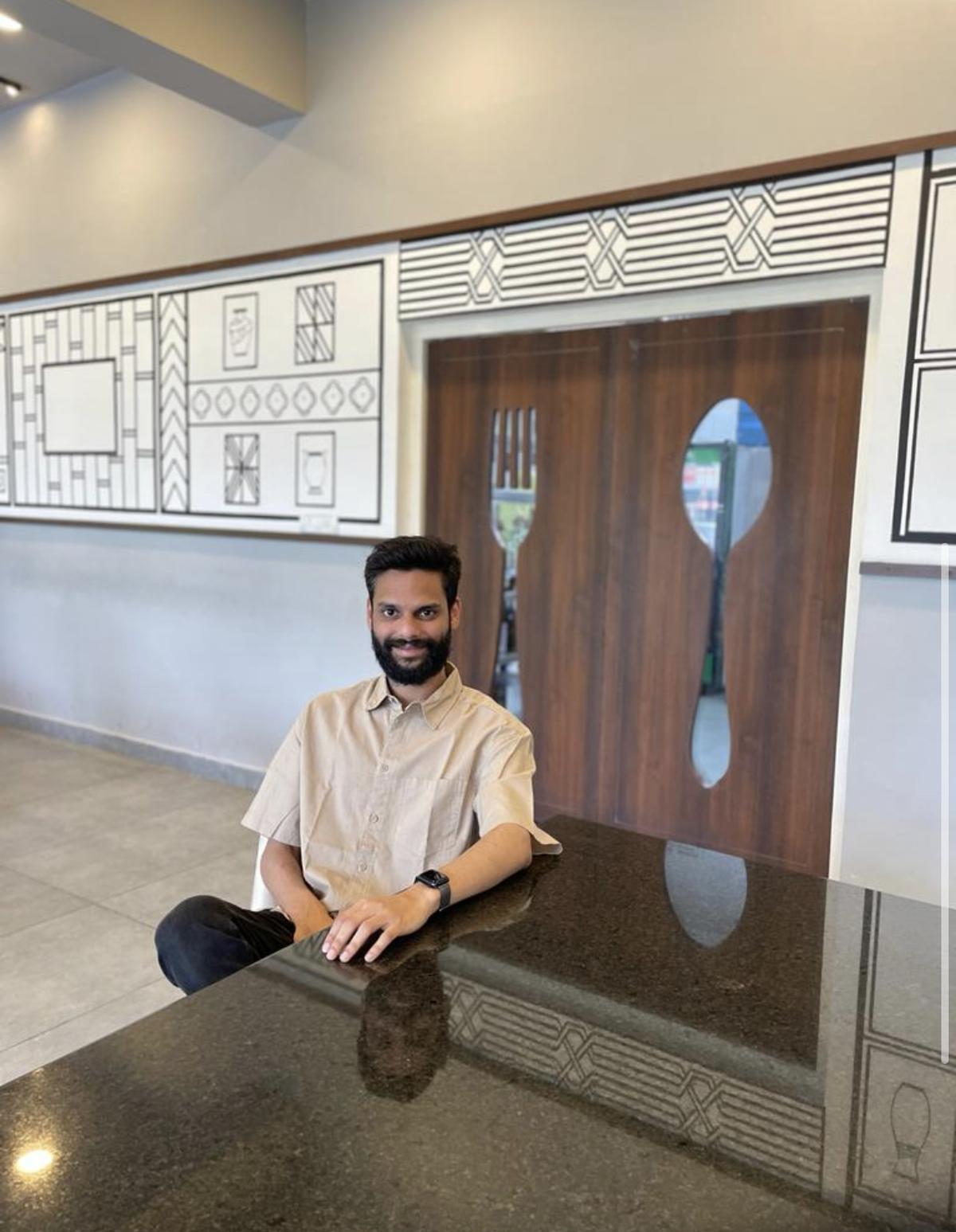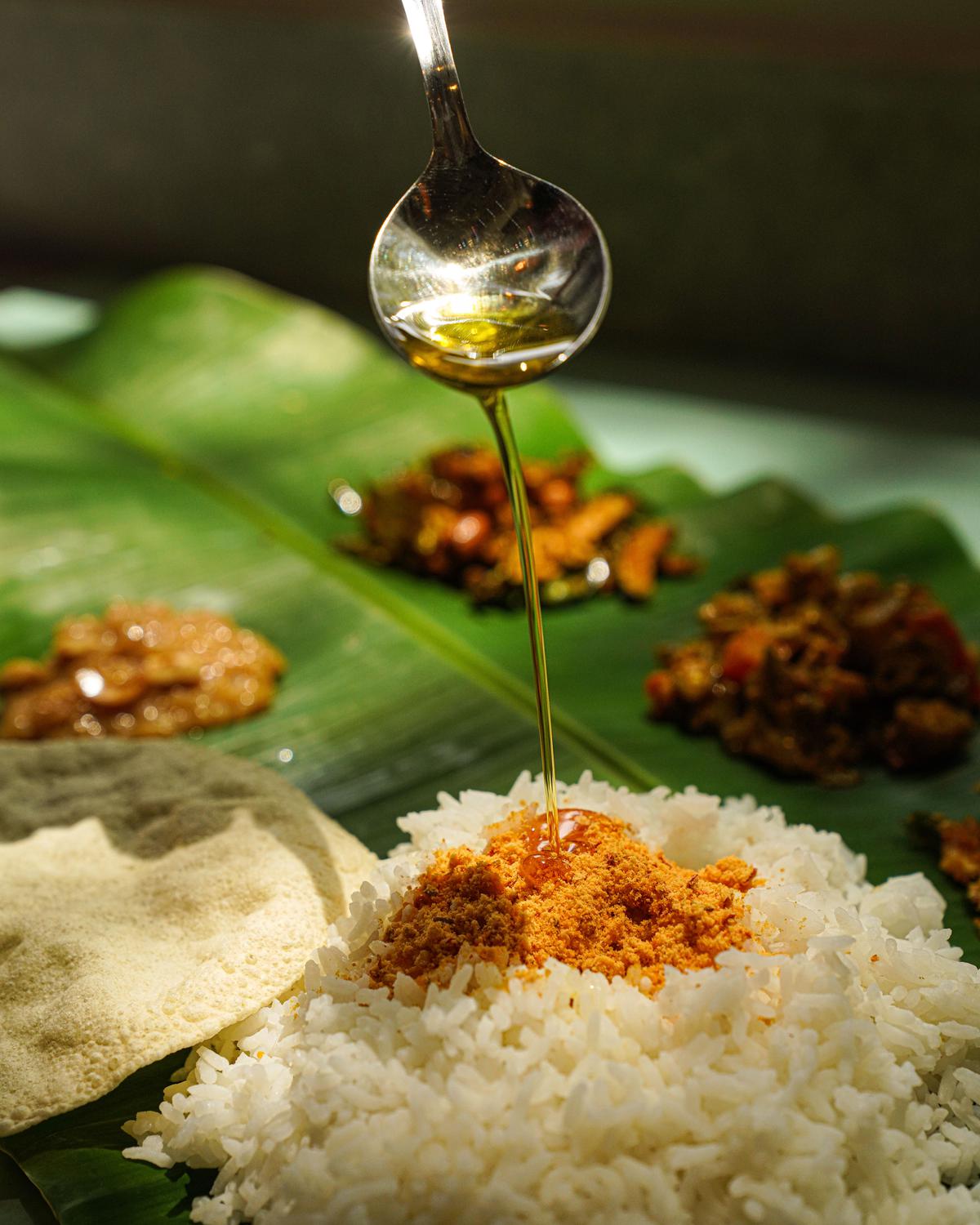A fresh crop of restaurateurs are finding slick, economical ways to repackage classic meals, encouraging customers to dive into traditional flavours in comfort
A fresh crop of restaurateurs are finding slick, economical ways to repackage classic meals, encouraging customers to dive into traditional flavours in comfort
In a plush, tree-lined bylane of Alwarpet, in a neighbourhood accustomed to buttery croissants and French- pressed coffee, sits a little corner mess where you can have unlimited portions of rice, dried fish sambal, meen kuzhambu, chicken curry, rasam, sambar, kootu and poriyal for just ₹160. At lunch on a heat-stricken weekday, all five tables under a quietly humming AC are full.
“It is heartening to see walk-ins from every demographic: from security guards to executives in huge SUVs,” says 30-year-old Vikram Reddy, one of the four entrepreneurs behind Kaaram Karaikudi Mess. He pauses mid-conversation to bid adieu to an elderly guest with a cane, being helped out gently by a young companion — the duo has been a regular ever since the two-week-old restaurant opened.
Repeat customers — and the patronage of established chefs and some celebrities — are Vikram’s proof that he was right in his basic business premise: “Everyone misses simple traditional food, and wants to eat it in comfort.” It is a premise that cannot be surprising, but is only now picking up tempo amid Chennai’s food entrepreneurs.
In Chennai, Meen Satti’s USP is fish cooked and served in clay pots, home delivered
| Photo Credit: SPECIAL ARRANGEMENT
To that end, 23-year-olds Aravind Suresh and Richie Richard have spent the last eight months serving claypot fish curries in the most comfortable setting of all: your home. The duo’s brand Meen Satti gained popularity in multiple pockets of the city throughout lockdowns, with a simple, fuss-free offering: home delivery of a family-sized box packed with rice, fish fry and meen kuzhambu in clay sattis. “Two separate sattis: one that the meen kuzhambu is cooked in, and one that it is packed in,” clarifies Aravind.
Growing popularity meant that Meen Satti needed a larger kitchen early this year, so Richie and Aravind moved to Ekkattuthangal. Opened less than a fortnight ago, the new Meen Satti space boasts an “experience store front” that seats two groups of diners on regular tables and one on a raised floor table, only on pre-booking.
Chennai restaurateurs Richie Richard and Aravind Suresh of Meen Satti.
| Photo Credit: VELANKANNI RAJ
What’s the experience here, you ask? Says Richard, “We have a dine-in expert who guides guests through the right way to eat a fish head, and things like that.” This team is clearly serious about fish.
Mom knows best
Frills are minimal, and the biggest reason for the success of these food outlets is the recipe. While Vikram and his partners Vaishnavi Ravishankar, Anush Rajasekaran and Swetha Rengasamy rely on the expertise of traditional cooks bringing in recipes from Madurai and Chennai, Meen Satti has just one person to thank: Aravind’s mother.
“Our curry is tamarind-based, not tomato-based, just like my mother used to make in Cuddalore. We have checked and measured out the quantities of the ingredients she would just use instinctively; we’ve written it all down,” says Aravind.

Inti Bhojanam owner Rakshith Ramesh
On the other hand, first-time foodpreneur Rakshith Ramesh, 29, spent weeks travelling around Hyderabad and Vijayawada in search of the right chefs and caterers to bring the nuances of Andhra Pradesh’s cuisine to Chennai through Inti Bhojanam.
The month-old restaurant boasts varied, traditional Andhra fare made more in the Vijayawada tradition than Hyderabadi. This means the famous Guntur chillies, but fewer of the red and more of green — “We had to tone down the heat for Chennai diners” — plenty of tamarind and just the right mix of ground spices. Think everything from brinjal stuffed with coconut and chickpea to gongura mutton made with the iconic, sour green leaves.
“We are perhaps the only people in Chennai who will serve you the traditional combination paruppu [a mild dal] with pacchu pulusu [tamarind water with the flavours of jaggery, fried green chillies and onion] on a banana leaf, the way it is supposed to be had,” claims Rakshith, adding, “Most of the menu is made of dishes that I grew up eating.”

A meal at Inti Bhojanam, Chennai
| Photo Credit: Special arrangement
Besides a vegetarian thali and non-vegetarian a la carte dishes, Inti Bhojanam also serves dum biryani and a sweet pellam pongal.
The prices, points out Rakshith, are kept deliberately low, “we are just a little bit more high-end than a regular mess. We want everyone to feel comfortable walking in,” says Rakshith from his seat facing a glass wall that stretches across the entire first floor, offering a tree-lined view of SIET College and office buildings, both of which provide steady streams of customers.
Accessibility is a key factor for 25-year-old Anirudh Rao as well. At his newly opened Teru, items cost an average of ₹60. This is because Teru (which means “street” in Tamil), true to its name, is all about the street foods of South India. And Anirudh is well aware that “No matter what improved quality of oil, safety of water and comfortable seating I provide, the customer will always be aware that they can eat something similar for ₹20 or ₹30 right down the street, if they don’t enjoy the taste here.”
Teru’s menu is interesting with popular street foods from Tamil Nadu and Andhra Pradesh. “I am currently working on zeroing in on dishes from Kerala as well,” he adds.
Besides being one of the rare spots in Chennai to make a halfway decent Mangalore bun, Teru’s USP lies in its sustainable packaging — including tiny bagasse cups and lids for chutneys. Andhra-style stuffed mirchi bajjis, Karnataka’s rice-based akki rotis, and Salem’s classic thattu vadai sets that tightly sandwich a beetroot and raw mango filling, all withstand a day-long test of crunchiness and taste in the breathable packaging.
Business aids business
This kind of consistency is key to Anirudh’s ambitions: “There are well-known brands that come to mind, when you think of packed North Indian street foods. I want to create something similar for us down South” he says.
To that end, he has begun tying up with home chefs for a number of packaged products. Teru sells Guntur-style podis and pickles made by a home chef based in Nandanam, as well as coffee from an estate in Chikmagalur. It also provides traditional lunches for offices and office-goers on pre-order, based on tie-ups with verified home kitchens in different parts of the city.
A meal at Kaaram Karaikudi Mess
| Photo Credit: Special arrangement
For Meen Satti, on the other hand, business relationships traverse multiple cities. “We have tied up with co-operative societies in Chennai, Kundrathur, Madurai and Vellore to provide us with sattis. They were excited at the idea of steady, long-term orders for a restaurant,” says Aravind. Richie adds, “We have to place orders with them three months in advance, and order about 2,000 sattis for each month.”
While the Meen Satti duo is trying to coax its customers to reuse these clay pots and see the benefits of traditional packaging, Anirudh has found another traditional icon to be inspired by: “Our buttermilk is inspired by mor thatha of Thiruvanmiyur,” he says with a sheepish grin, readily acknowledging that the original is unparalleled.
























